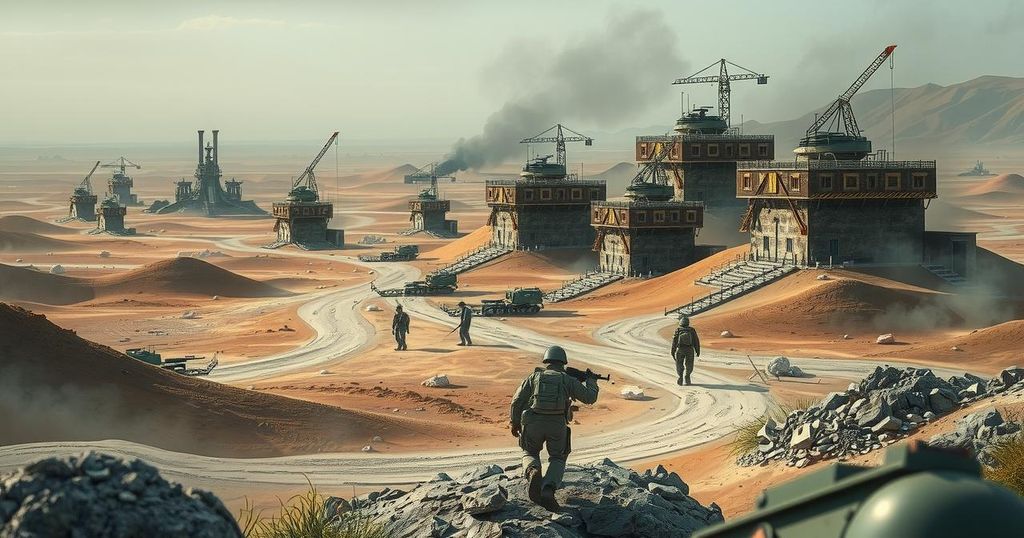North Korea to Send 5,000 Personnel to Russia’s Kursk Region amid Ongoing Ukraine Conflict

North Korea plans to send 5,000 personnel to Kursk, increasing its involvement in the Ukraine conflict. French President Macron condemns Putin’s actions during a deadly attack on Kyiv, which left many dead, including a U.S. citizen. Tensions escalate among G7 leaders, following Trump’s early departure from the summit. Amid tragedy in Ukraine, Australia enacts sanctions on the Russian shadow fleet.
In recent developments surrounding the ongoing conflict in Ukraine, Russian news agencies have reported that North Korea plans to send a significant contingent of personnel to the Kursk region. According to Sergei Shoigu, the chief of Russia’s security council, during his visit to Pyongyang, the North is dispatching a division of builders along with two military brigades, totaling approximately 5,000 individuals, as well as an additional 1,000 personnel for demining operations. These reinforcements come following a reported 6,000 casualties among the 10,000 North Korean soldiers previously sent to fight in Ukraine, as noted by the British defense ministry this week.
On the diplomatic front, French President Emmanuel Macron has criticized Russian President Vladimir Putin for his actions in Kyiv, accusing him of taking advantage of global distractions to escalate atrocities against civilians. “It shows the complete cynicism of President Putin, who is using the international context to step again attacks against civilians,” Macron remarked, addressing reporters at the G7 summit in Canada. This assault has claimed the life of a U.S. citizen, according to statements from the State Department.
Notably, President Donald Trump’s early departure from the G7 summit left Ukraine’s President Volodymyr Zelenskyy cut off from potential support, garnering frustration among European leaders. One official lamented, “It is a permanent hazard that Ukraine is a victim of events and Trump’s short attention span,” reflecting concerns over lost opportunities for new arms deliveries from the U.S. amid Trump’s insistence that Ukraine might be a fiscal burden on American resources.
During the summit’s discussions about the war in Ukraine, leaders from the remaining G6 expressed a strong stance against the Russian aggression. President Zelenskyy indicated Ukraine’s readiness for peace negotiations, emphasizing the need for an unconditional ceasefire, but insisted that significant pressure be placed on Russia to facilitate this. The divergence between Trump’s viewpoint and that of the other G7 leaders has become increasingly pronounced.
Tragically, the recent Russian missile attacks on Kyiv have led to widespread devastation, flattening parts of an apartment block and resulting in at least 18 fatalities, with 151 others wounded. Among the casualties, 16 were reported in Kyiv and two in Odesa. Residents, like 57-year-old Viktoriia Vovchenko, expressed horror at the chaos, saying, “I have never seen anything like this before. It is simply horrific.”
On a related note, Australia has recently imposed sanctions targeting the Russian “shadow fleet,” which is known for evading trade restrictions related to the war. Penny Wong, Australia’s foreign minister, described these measures as critical. The shadow fleet operates through various deceptive tactics and enables the illicit trade of Russian oil and sanctioned products, she added. This marks Australia’s first major response in terms of sanctions against Russia.
As the conflict in Ukraine continues to escalate, the involvement of North Korea’s military personnel highlights the increasing complexities of international military dynamics. Further, the tensions between global leaders, particularly surrounding President Trump’s policies, illustrate the challenges in forming a unified response to Russia’s aggression. The humanitarian cost mounts as missile attacks devastate civilians in Ukraine, prompting urgent calls for international pressure on Russia. Meanwhile, Australia’s commitment to sanctioning the Russian shadow fleet indicates a growing international resolve to counteract Moscow’s military ambitions.
Original Source: www.theguardian.com








